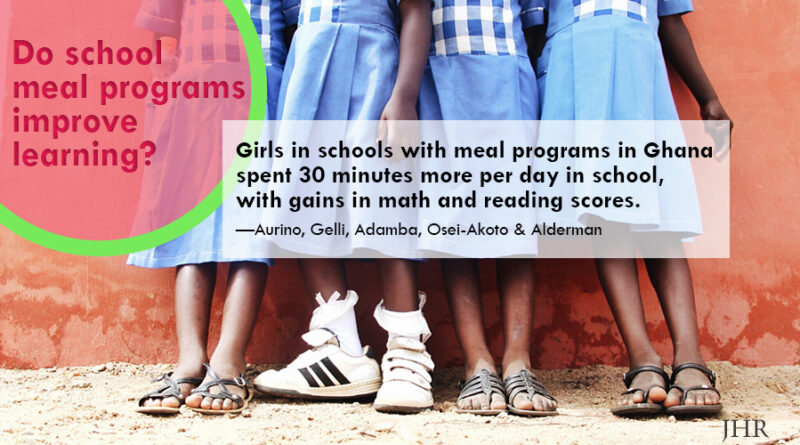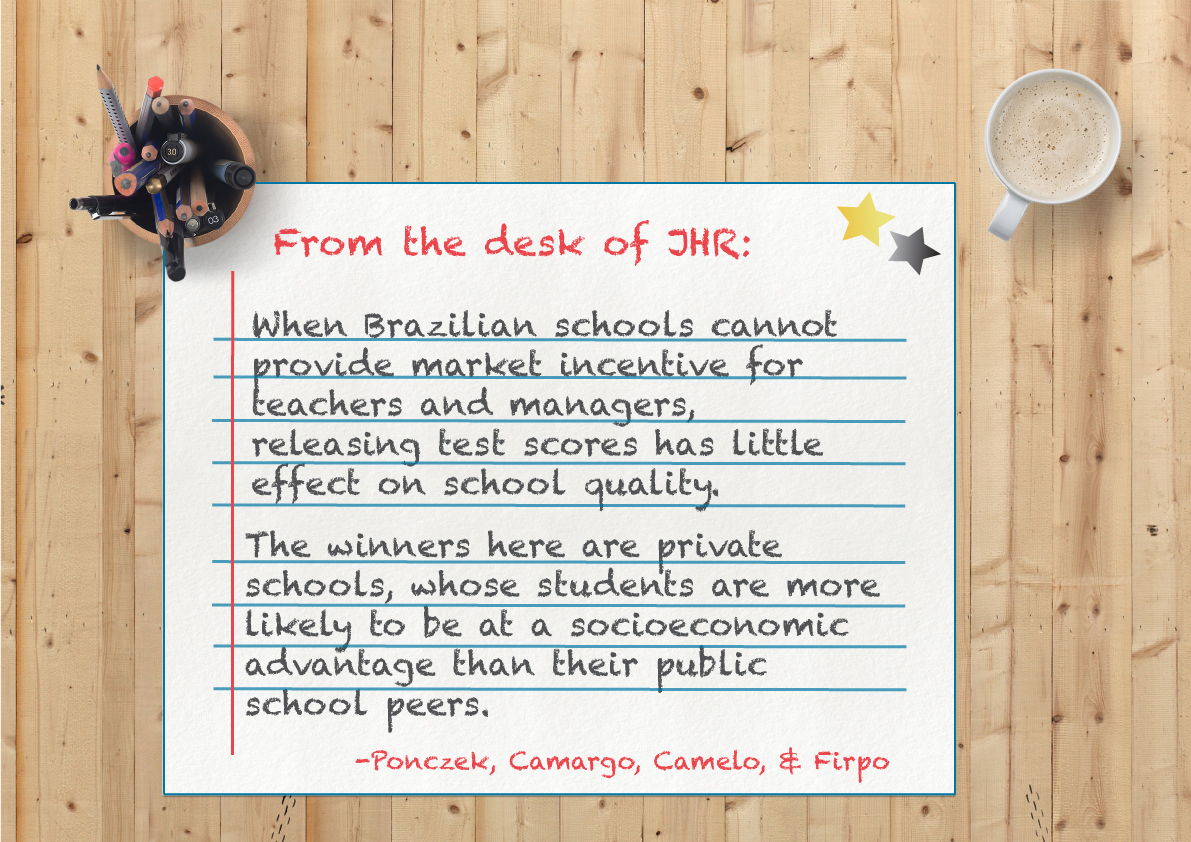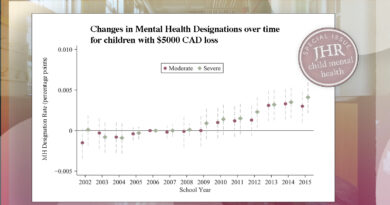School Meals at Scale Improve Learning, Especially for the Most Vulnerable Children
Globally, 388 million children participate in school meal programs. Research has shown that providing meals can improve children’s school participation and physical and psycho-social health. But do meal programs affect learning? Elisabetta Aurino, Aulo Gelli, Clement Adamba, Isaac Osei-Akoto, and Harold Alderman evaluated Ghana’s national school meal program to find out.
Previous evidence on learning effects has been limited—focused mostly on small-scale experiments run by NGOs—and has mixed results. Aurino and her collaborators worked in partnership with the government to address this question through a trial implemented across all 10 regions of Ghana. They find the program has positive impacts on standardized test scores, especially for the poorest children and for girls.
Communities were randomized to either a control group without intervention, or a treatment group providing the reformed national school feeding program, which provides one hot meal a day in public schools serving children aged 5–15.
They find positive effects on aggregate learning, math, and literacy scores, which rose by an average of about 0.15 standard deviations. The most vulnerable learners—girls or children from northern regions or the poorest households—had even larger benefits, with scores increasing by about 0.25–0.30 standard deviations.
These findings have far-reaching implications, as the challenge of low learning in Ghana is comparable to those of other low- to middle-income countries. Disparities in achievements are also large, with girls, children of lower socioeconomic status, and rural children lagging behind.
How does this study inform policy? According to Aurino, “School meal programs can support learning especially for the most vulnerable groups, with potentially long-term effects on children’s health, incomes, and intergenerational poverty transmission. These findings suggest that a school feeding program is an effective social protection intervention that can enhance equitable learning/human capital, which is key for a country’s development.”
Read the study in the Journal of Human Resources: “Food for Thought? Experimental Evidence on the Learning Impacts of a Large-Scale School Feeding Program,” by Elisabetta Aurino, Aulo Gelli, Clement Adamba, Isaac Osei-Akoto, and Harold Alderman.
***
Elisabetta Aurino is at Imperial College London (@ElisabettAurino). Aulo Gelli is at International Food Policy Research Institute. Clement Adamba is at University of Ghana. Isaac Osei-Akoto is at ISSER and University of Ghana. Harold Alderman is at International Food Policy Research Institute. @ImperialBiz, @IFPRI
The authors acknowledge funding by the Bill and Melinda Gates Foundation.




